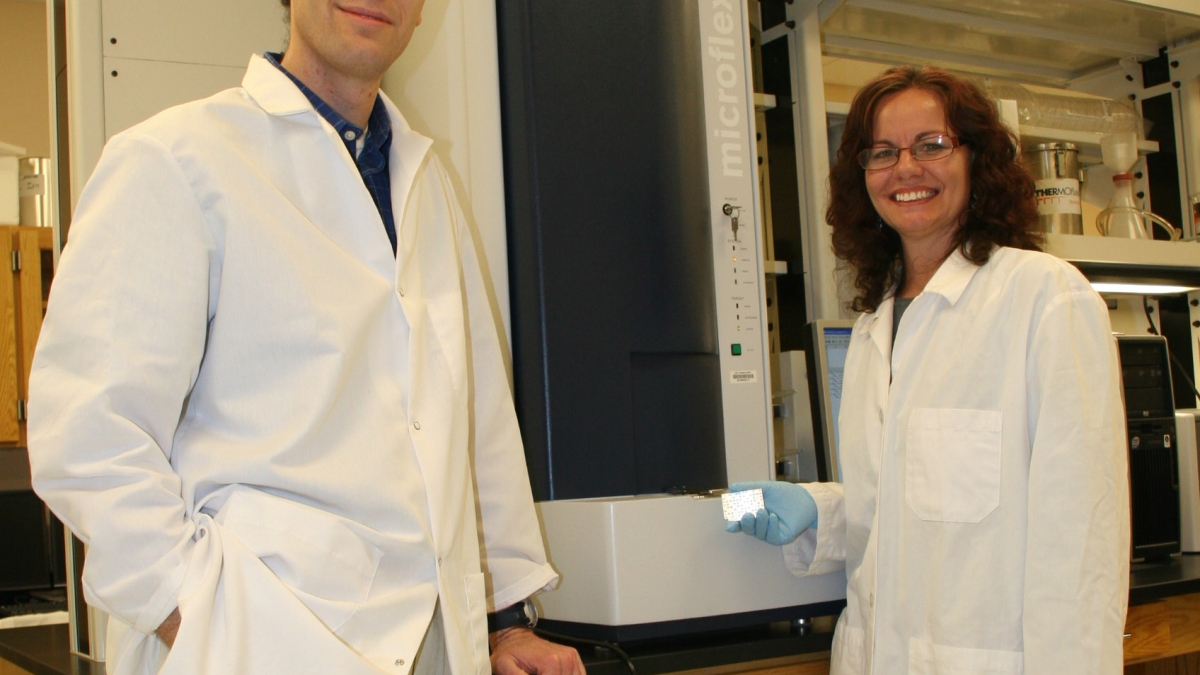Biotechnology careers aided by degree collaboration

Collaboration between Glendale Community College and Arizona State University’s New College of Interdisciplinary Arts and Sciences is paving the way for students to pursue careers in the growing fields of biotechnology and cell/molecular biology research.
New College, the core college on ASU’s West campus, has added a concentration in Cell and Molecular Biology Research (CaMBR) to its existing Bachelor of Applied Science (BAS) degree program. Students who have completed GCC’s Associate of Applied Science (AAS) degree in Biotechnology and Molecular Biosciences are able to transition seamlessly into the New College program.
“BAS graduates with a CaMBR concentration will be well-positioned and competitive if they choose to apply for high-tech, biotechnology-focused careers,” said Todd Sandrin, associate director of New College’s Division of Mathematical and Natural Sciences. “Other students may use the degree to enhance their record as they apply to professional programs, including medical school.”
Biotechnology underpins some of the most relevant and transformative advances in the biological sciences today, Sandrin explained.
“Graduates of this program can pursue exciting opportunities in which they develop tools to, for example, produce new biofuels and pharmaceuticals efficiently,” he said. “CaMBR graduates may also pursue graduate degrees and help develop advances such as the next generation of biofuels or anticancer drugs.”
“Dr. Sandrin has become a familiar face to my students,” said James Tuohy, director of the Biotechnology program in GCC’s Biology Department. “Through his many visits and presentations here at GCC and the internship opportunities that he has afforded my students, he has been a huge factor in removing the apprehension that students sometimes have in crossing the bridge between community college and university.”
One of Tuohy’s GCC graduates who is now enrolled in the BAS program is Stephanie Schumaker. The married mother of three credits “above and beyond” support from Tuohy and encouragement from Sandrin in helping her continue her education.
“If the West campus did not offer this degree, I would not have decided to move forward,” Schumaker said. “The campus is so close and has an excellent reputation. The program will allow me to have a degree I thought I would never achieve at this stage in my life and with a family. The hands-on experience I have gained and will continue to gain is priceless.”
Hands-on experience is one of the hallmarks of New College, according to Sandrin. Students across the college benefit from individualized instruction as well as internship and research opportunities. In addition, students who participate in the New College Undergraduate Inquiry and Research Experiences (NCUIRE) program are paid to work with faculty members on research projects.
BAS graduates in the new CaMBR concentration should find an expanding job market, Sandrin said. “According to the Occupational Outlook Handbook, job growth in the current decade for biological scientists is expected to be about 20 percent. This is much higher than average. Much of the job growth in this field is driven by research and development in biotechnology,” he said.
ASU’s Bachelor of Applied Science degree program enables students with an AAS degree from a regionally accredited community college to transfer all 60 AAS credits toward their bachelor’s degrees. “The BAS at the West campus is unique in that students are able to create their own 18-credit area of concentration within their program of study,” said Cathy Kerrey, manager of advising and curriculum for New College’s Division of Humanities, Arts and Cultural Studies.
Students interested in New College’s BAS degree with the CaMBR concentration, or any other individualized area of concentration, may speak with an advisor by calling (602) 543-4444.